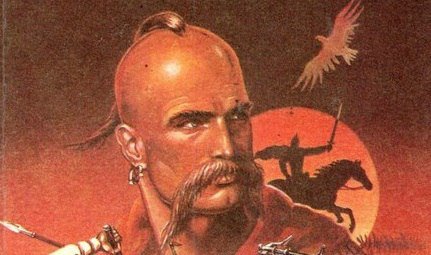The small country of Macedonia presented the world history of Alexander the Great. The whole world knows the Roman Julius Caesar. However, very few people outside the Russian soldier knows, comparable to Alexander and Caesar, as well as the governor and human immeasurably superior to them - the Grand Prince of Kiev Svyatoslav Igorevich, nicknamed the Brave.
Moreover, now, and his memory of the Russian attempt to strike, to displace. Get out books on Russian history, where our hero is given to two or three pages, if not more lines. And then there is, and how to not know why republished prerevolutionary children's book "My First Russian history", which immediately goes to Olga Vladimir. As if there was Svyatoslav the Brave, which even his enemies respectfully called "the kingdom of the north of the Danube" and compared with the ancient hero Achilles.
There are writers cunning: "Yes, de, was a thief, playboy, raids on neighbors arranged, nothing but robbery, and did not know know. And died stupidly, in one of their raids.
What can I say? Know, and a thousand years later, someone scared and hated his name. Know, and today does not allow someone to sleep his fame.
However, one person, even such as Sviatoslav the Brave. In a book about the present-chtёsh as Russia, it turns out, it was not his time. There was no power. There were some "tribes", from which took a little less than a tribute to the wild Northmen.
What it was in fact a country in which our hero is born?
Surprisingly - historians do not know whether that time Rus state. Just because they do not know what actually is - the state. Facing so many definitions of the state, as its interpretations and versions of its appearance, that listing them would in itself was the head, and the presentation - the book. Russia called the "barbaric power," "supersoyuzom tribes", "protogosudarstva" ...
Simply put, our question historians do not know the answer. For whether is easier, than to delve into the maze of their disputes, appeal to his contemporaries? As they looked at our ancestors? Who saw the rulers of Russia - the tribal chiefs or rulers of powers?
Western Europe of the Middle Ages belonged to the titles more than seriously. Seriously it belonged only to God and the Christian faith. For misuse of the title there called to a duel, were sent to the scaffold, declared war. So, from the outset, with posts Bertinskih annals of the embassy, "the people of Rus' to the emperor francs, Louis the Pious in 839, the Rus ruler called" king. "
From the book by Leo Prozorov "Svyatoslav Khorobrikh. Coming to you! "
